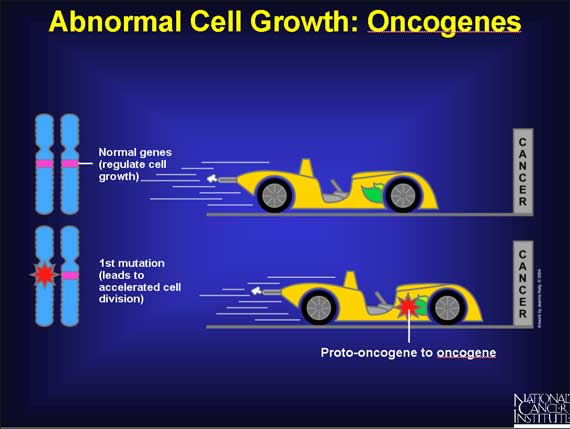|
Most cancers have mutations in proto-oncogenes, the normal genes involved in the regulation of controlled cell growth. These genes encode proteins that function as growth factors, growth factor receptors, signal-relaying molecules, and nuclear transcription factors (proteins that bind to genes to start transcription). When the proto-oncogene is mutated or overregulated, it is called an oncogene and results in unregulated cell growth and transformation. At the cellular level, only one mutation in a single allele is enough to trigger an oncogenic role in cancer development. The chance that such a mutation will occur increases as a person ages.

< Previous | Index | Next Slide > |